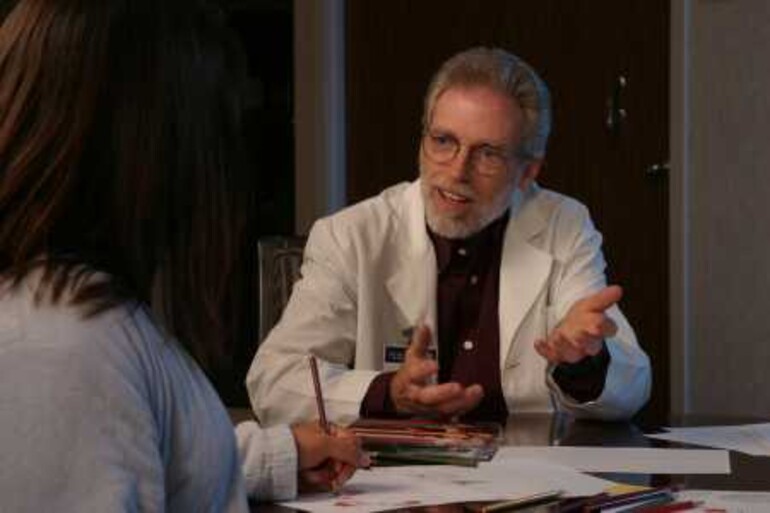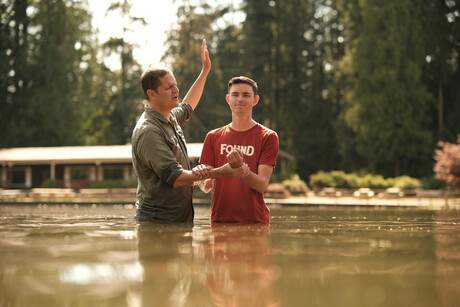If you asked Rick Duffield, RN, why he would recommend nursing, he’d tell you the same thing his aunt told him 40 years ago. It’s all about options. In fact, out of curiosity, he recently made a list of all the things a registered nurse could do, and more than 50 possibilities soon filled the page, ranging from computer expert to professor to magazine editor.
“The good news is that very few involve bed pans,” explains Rick with a laugh.
Now a nurse coordinator in Adventist Medical Center’s (AMC) adult psychiatric services unit in Portland, Oregon, Rick has personally explored a number of avenues along a winding career path that has always been inspired by a desire to listen and understand.
It all began in junior high where Rick remembers wondering why his classmates thought and acted the way they did, so he began pouring over stacks of library books in search of answers. He ultimately took his aunt’s advice and enrolled in the nursing program at Loma Linda University. His first clinical rotation took him to Patton State Hospital, where he discovered psychiatric nursing.
“I knew immediately it was what I wanted to do,” recalls Rick. “To this day, I love trying to figure out where my patients are coming from. It constantly stretches my mind.”
After graduating, Rick went on to earn a master’s degree in psychiatric nursing from UCLA. He soon grew tired of the Southern California smog and headed north where he spent the next eight years teaching psychiatric nursing at Oregon Health and Science University. Each summer, he’d brush up on his clinical skills at a local hospital.
“Textbooks can only teach so much,” said Rick. “I always enjoyed using my experiences to bring a dose of reality to the classroom.”
A desire for more reality in his own life inspired him to accept a position at AMC in 1980. Twenty-five years later, he supervises more than 100 nurses and mental-health therapists whom he refers to as a big family. While he occasionally returns to the floors when things get busy, these days his well-honed clinical skills are often used to resolve conflicts and build team spirit among staff members.
Throughout his career, Rick has most enjoyed the daily opportunity to sit down with patients and simply listen.
“I just let them share and hope that my actions and deeds will display the healing ministry of Jesus,” explains Rick. “Our mission allows me to pray with my patients, refer them to a chaplain and address their spiritual as well as mental and physical needs.”
These days, Rick is especially excited about Dr. Sandra Bloom’s “Sanctuary Model” that aims to create a safe and caring sanctuary for healing that is free of the stigmas often associated with mental health. By creating a more sensitive, home-like environment, Rick has seen a drastic reduction in power struggles between patients and staff.
“While our units are locked, we want patients to forget about the white walls and realize that we’re here to help, not judge,” says Rick. “It’s all about making a difference.”









